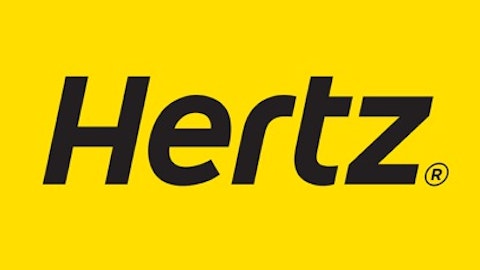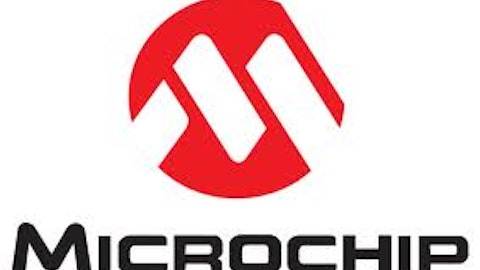Jim Cramer may be a fan of recently hot auto rental stocks, but investors should temper their enthusiasm – an oligopoly does not necessarily make a good business.
Game theory in microeconomics reveals plenty about the ability of a firm, or several firms, to generate economic profits. While an oligopoly does lend itself to improved margins when competitors align themselves against consumers, there is no natural force that makes an oligopoly a better investment than a very competitive industry.

Competition whittles margins
To be sure, the auto rental market has consolidated. Three players, Hertz Global Holdings, Inc. (NYSE:HTZ), Avis Budget Group Inc. (NASDAQ:CAR), and Enterprise, now own more than 90% of the market.
However, the auto rental market can easily expand without new competitive entrants. Hertz Global Holdings, Inc. (NYSE:HTZ), Avis Budget Group Inc. (NASDAQ:CAR), or Enterprise can quite easily add to their own respective rental fleets, which would then require more cost competition.
To assume that this oligopoly will lead to outsized returns assumes only that no single player will seek to maximize their profits by increasing their rental fleets. That reality seems far-fetched at best.
Hertz Global Holdings, Inc. (NYSE:HTZ) does not intend to significantly reduce its rental fleets, even after the acquisition of Dollar Thrifty. Instead, the company plans to keep three brands at every airport in which it operates. That leaves behind a competitive risk that the brands compete among themselves and with Avis Budget Group Inc. (NASDAQ:CAR) on pricing. Most importantly, it leaves the door open for fleet expansion at one or all of its brands, which, if timed poorly, leads to overcapacity and lower profits as margins become pressured.
Debt-fueled pricing disasters
When rental companies become overburdened with debt and fear illiquidity to pay on their debt issues, they resort to pricing, which generates cash at the cost of negative earnings. Cash in hand is more valuable than profitability when you have an upcoming debt maturity. This was true in other competitive commodity businesses like sea shipping, where rates are below the level necessary to maintain long-term profitability simply because some players need cash in hand.
Car rental businesses are involved in similar economics. They use substantial leverage to acquire fleets, compete on price, and carry debt loads that may prove to be unmanageable in any down cycle.
Let’s see just how levered the auto rental companies are.
Hertz Global Holdings, Inc. (NYSE:HTZ) has a pro-forma corporate debt to EBITDA of 3.1, and a total debt to equity ratio of 6.2.Meanwhile, publicly-traded competitor Avis Budget Group Inc. (NASDAQ:CAR) has a 12.8 debt to equity ratio. In any downturn, these companies will necessarily have to lower rates to boost utilization and cash generation to make good on their growing debt levels.
Debt is nothing to fear by itself. Debt makes low-risk investments more rewarding. However, at the same time car rental services are adding debt, they’re also adding risk to their underlying businesses. The auto rental industry has concentrated revenue, and concentrated risk in the depreciation of their own fleets.
Avis Budget Group Inc. (NASDAQ:CAR) generated 71% of $5.3 billion in total car rental time and mileage revenue from its airport locations. Frequent fliers know the limited competition at on-airport locations, and the difficulty of shopping around on location. Hertz Global Holdings, Inc. (NYSE:HTZ) also generated 70% of its American car rental income from on-airport locations. Both companies are significantly exposed to air travel.
As of the latest annual report, Hertz is heavily invested in its own fleet. Only 19% of its cars in the United States are “program cars,” cars on which there is a repurchase guarantee at a contracted price with the manufacturer. As such, if Hertz has to cut back on supply, it runs a real risk of write-downs as it liquidates cars at a discount.
Avis Budget Group Inc. (NASDAQ:CAR) carries the same risk. The company has increased the proportion of “risk cars” in its fleet from 1% in 2005 to a company-estimated 65% in 2013. Thus, Avis is just as exposed to the cyclical nature of the automotive business as much as it is exposed to the cyclicality in car rentals. This comes at the same time the company levered up for an acquisition of ZipCar.
Let synergies show themselves
Car rental companies are already priced for near perfection in utilization, pricing, and cost synergies from their recent acquisitions. Smart investors will be paid to wait the industry out to see if these synergies actually develop – few do, as cost savings plans rarely take perfect shape.
At this point, investors are late to the oligopoly and pricing-power story. There’s little reason to chase a cyclical industry with high debt balances when all major players are trading at historically premium valuations. Wait and see – the economics of the car rental business are overstated for their ability to generate excess economic profits.
The article Oligopoly or Not, Car Rental Stocks Are Untouchable originally appeared on Fool.com and is written by Jordan Wathen.
Copyright © 1995 – 2013 The Motley Fool, LLC. All rights reserved. The Motley Fool has a disclosure policy.



